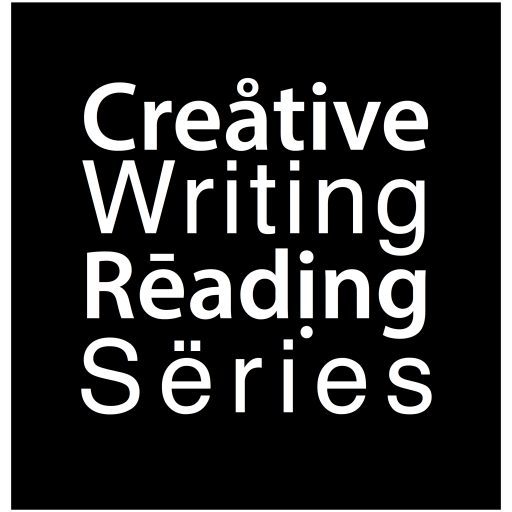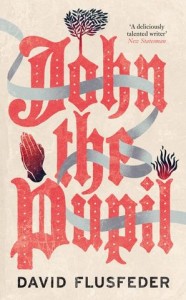Kicking off the 2014-15 Creative Writing Reading series was our very own David Flusfeder, launching his latest novel John the Pupil (4th Estate), a fictional account of a real-life medieval quest – the journey of Roger Bacon’s pupil, John, to deliver a copy of his master’s Opus Majus to the Pope in Rome. Roger Bacon, a thirteenth century English philosopher and Franciscan friar – circumvented the Franciscan rule banning the publication of text by friars by having Pope Clement IV personally order him to write to him concerning the place of philosophy within theology – thus John’s journey to Rome. The Opus Majus – famous for proposing the concept of the leap year – although it was 300 years before it was finally accepted and the Julian calendar of 365 and a quarter days replaced by the Gregorian calendar – is a work that argues for the application of Aristotelian philosophy and scientific discovery and method to theology.
But John the Pupil is not about Bacon, or the Opus Majus, so much as about John – a bit-player unfilled by historical account – and the extraordinary journey he undertakes to deliver this important work from Oxford to Rome. The novel purports to be a found document, containing fragments of John’s chronicle of his journey, translated, and arranged in an order which is plausibly, but not certainly, that of its supposed chronology of writing.
David read from sections of the novel, and spoke illuminatingly about how the writing of the book related to concerns about how to write historical fiction. Addressing issues of fictionalization and the creation of historical verisimilitude, David stressed that the novel was an attempt to challenge the oft-found fiction in historical fiction – that its characters, from whatever historical period they inhabit, are essentially ‘like us’, characters easily identifiable with how a twenty-first-century western subject understands subjectivity: a universal human, albeit one encountering different historical contexts, events and living conditions. This concern with characterization – how to present the mind of a thirteenth century monk whose primary teachings on how to encounter the world were not only formed from religious texts, but religious texts fundamentally different from those we now know – was one that permeated every aspect of style and vocabulary in the novel. David talked about how he had to expunge the rhythms and vocabulary of the King James Bible, for so many centuries the definitive version of the bible, and a work that fundamentally altered our relation to our religion, in order to present a monk raised on the Latin Vulgate. Every word in the novel has roots in the thirteenth century or is a translated Latin word – rendering certain vocabularies, and thus ways of understanding experience, inaccessible within the book, as they would have been for John.
Introducing the interroflus – an interest in presenting a mind through its available, and, to us, strange, vocabulary allows one certain imaginative freedom, and this comes in the novel in the form of a new punctuation mark – a question mark with a comma, rather than full stop underneath. This allows you to ask questions that are imbedded in a larger sentence, an innovation that could have saved me hours worth of editing if I’d known about it earlier.
Despite the dissimilarity of the medieval mind, David urged students to come into as close a contact with their materials and the experiences of their writing as possible: in his case this involved a recreation of the journey he has John take – walking from England to Rome. Whilst being an obviously different journey in many ways from the one he has John make over 700 years earlier, this helped him both understand the physical journey and landscapes and cultures encountered. It was also, in some ways, an extension of the very idea of pilgrimage (which is the venture that John’s companions, for much of the book, mistakenly believe themselves to be on) – as David’s recreation of his own characters fictional journey maps on to pilgrimage’s basis in its preoccupation of its recreation of another journey – Christ’s final journey.
The session ended with a rallying call: not to be suspicious of the pleasure, and excitement, of writing – the novel having come out of a sentence David discovered in his research on explosives for an abandoned seventh novel – and to trust those instincts that tell you when a book is going to be a pleasure, or not, to write. Sound, as well as heartening, advice.
Kat Peddie

